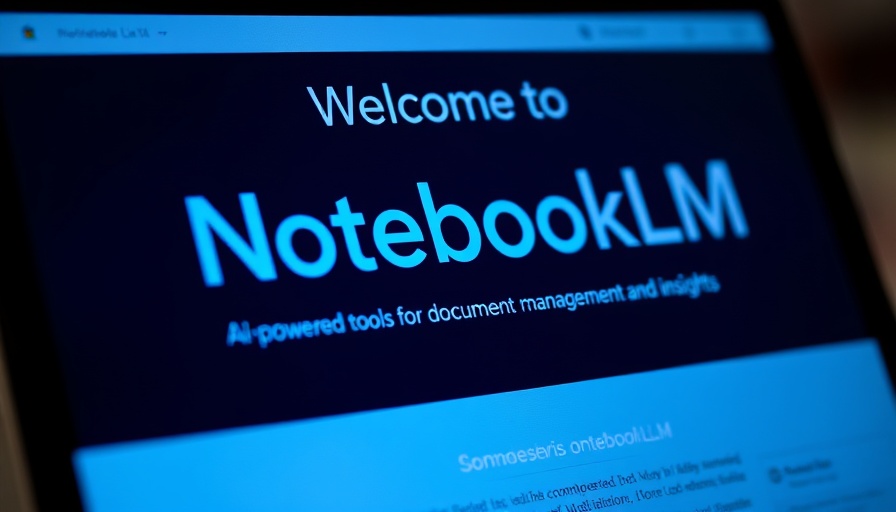
Tim Cook Addresses Siri's Challenges: The Road Ahead
During a recent earnings call, Apple CEO Tim Cook took a moment to address a critical issue that has been occupying the tech community—Siri's slow evolution within the Apple Intelligence framework. Since Apple announced exciting plans for a revamped Siri back in June, stakeholders have eagerly awaited developments. Although some improvements have surfaced—like a new interface and the ability to answer follow-up questions—the more ambitious updates are still months away, leaving consumers and analysts with mixed feelings.
The Expectations vs. Reality of Siri
Cook's assertive claim that "we need more time" for Siri's enhancements resonated powerfully, given that one of the central aims of the Apple Intelligence initiative was to vastly improve the voice assistant's abilities. The promise was for a Siri that could engage more conversationally and provide contextual answers, molding it into a genuinely intelligent assistant. However, these enhancements require further development, as Cook indicated that the substantial upgrades would only arrive with the upcoming iOS 19 release.
Investment in Innovation: What Does it Mean?
Amidst criticisms about Siri's stagnation, Cook defended the company's ongoing R&D investments. Apple is increasing its expenditure, as CFO Kevan Parekh confirmed, highlighting their long-term commitment to innovation. This may soothe concerns for investors worried about the stagnation of the Apple Intelligence rollout. Companies in competitive tech markets must not only innovate but also maintain consumer trust by delivering quality products over speed.
Delays and Consumer Expectations
While the call provided some insights, it also brought to light the disconnect between customer expectations and the reality of product development. In the fast-paced world of AI, customers aren't just looking for upgrades; they want them delivered efficiently. Analysts were quick to question what caused the delays, speculating whether internal challenges or strategic misjudgments were at play. Ironically, Cook's vague responses about these delays only heightened frustrations—acknowledging the setbacks while providing little context left many to wonder about Apple's roadmap.
Implications for Future Market Positioning
The advent of smarter AI tools is reshaping consumer landscapes, and Apple finds itself under pressure. As competitors rush to rollout their AI advancements, Cook promised Apple’s enhancements would eventually meet high-quality standards. If Apple succeeds in releasing a significantly improved Siri, the benefits would not just be for Siri users but signal a clear marker of Apple's adaptability against its rivals, a crucial factor considering the increasingly competitive landscape.
The Financial Landscape: Mixed Signals
Despite the challenges surrounding Siri, Apple's financial performance during the last quarter displayed some resilience. The company reported a 5% sales increase year-over-year, partially aided by smartphone revenues. However, the true test will come with the market's response to Apple Intelligence as it expands globally, especially now that enhanced language support is on the horizon. Could these updates turn the tide in favor of Apple? Time will tell.
Future Perspectives on AI Integration
As tech decision-makers within marketing and business circles, understanding the shifts in AI capabilities is essential. The ability of platforms like Siri to adapt and grow will impact everything from user engagement to brand loyalty. The tech industry thrives on swift innovation; falling behind can have severe repercussions. As leaders in tech look ahead, it’s crucial to consider what effective AI integration means for their businesses—fostering long-term relationships and innovative solutions.
The insights shared by Cook during the earnings call align with Apple's broader vision. With ambitions to redefine the digital assistant experience, a resolute commitment to quality will be key to winning back consumer confidence. The balance between patience for improvements and the urgency of consumer demand will define the company’s strategies moving forward.
 Add Row
Add Row  Add
Add 




 Add Row
Add Row  Add
Add 

Write A Comment